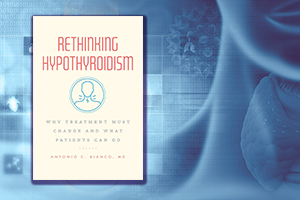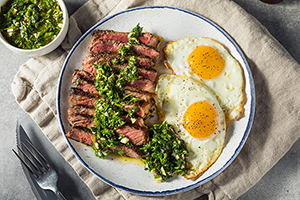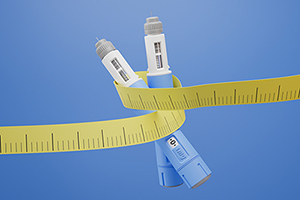



| By Dr. Ronald Hoffman

There’s plenty to be anxious about these days: When will the lockdowns end? Will my kids/grandkids be irreparably set back by school interruptions? Will dire predictions about lapsed immunity and viral variants portend a fourth wave later this year? Will the economy implode? Is the political divide irreconcilable? And what will happen to your “bucket list” amid protracted travel and entertainment restrictions? Not to mention the agonizing decision for some over whether to opt for the vaccine or risk your personal safety without it.
During the pandemic, about 4 in 10 adults in the U.S. have reported symptoms of anxiety or depressive disorder, up from one in ten adults who reported these symptoms prior to COVID-19 (from January to June 2019).
“Anti-anxiety medication prescriptions have spiked 34% during the coronavirus pandemic,” reports Express Scripts, a pharmacy benefits manager.
The burden of anxiety falls disproportionately on the young, who have suffered isolation and career obstacles during their formative years. Ask any 20-something who hasn’t been able to date, can’t get a job or has been laid off, or has had their education interrupted.
Rates of substance abuse are soaring as people seek a temporary fix for their emotional malaise.
Anxiety has even resulted in collective mass-hysteria as people discard calm deliberation in favor of knee-jerk emotional reactivity, fueled by a constant stream of strident social media exhortations. Our device dependency is off-the-charts, and excessive use portends unhappiness.
Some of this has been discussed at length in a recent book, Brain Wash: Detox Your Mind for Clearer Thinking, Deeper Relationships and Lasting Happiness, by Drs. David Perlmutter and Austin Perlmutter, who I interviewed recently on the Intelligent Medicine podcast.
CBS’s Norah O’Donnell asked if Dr. Anthony Fauci was worried about a possible “mental health pandemic.” Fauci replied he was. And he predicted lasting effects.
Some of the mental health mess can be blamed on our current circumstances, sure to improve when the specter of COVID-19 eventually recedes.
We can’t wish away the pandemic, and positive thinking only goes so far to banish worry.
But there’s also a physical basis for anxiety. As the Perlmutters point out, and as a new article in Medical News Today delineates, there may be a link between inflammation and anxiety.
Research demonstrates that there’s a strong correlation between markers of inflammation—like C-reactive protein, interleukin-6 (IL6), and tumor necrosis factor alpha (TNF)—and anxiety disorders. This makes sense because illness changes behavior, making mammals more timorous, fearful, and risk-averse. We all have experienced this to some degree or another when a minor viral illness or injury ushers in a dark mood, and we’re assailed with irrepressible negative thoughts.
It’s fine, and even a positive evolutionary adaptation when this reaction is temporary, forcing us to withdraw and recuperate. But when inflammation is chronic, its brain effects can foster a “stuck” mental morass.
And, paradoxically, the very conditions of the lockdown, even absent a viral infection, can precipitate inflammation. More people are gaining weight and developing insulin resistance, which are major drivers of a chronic inflammatory state.
Additionally, the consumption of comfort foods is accelerating during the pandemic. PR Newswire reports:
“In 2020 – the year of quarantining and social distancing – many Americans have chosen to eat like a kid again, according to new research. No matter gender, age or location, feel-good, nostalgic food has made perhaps the biggest comeback of all time . . . A new poll of 2,000 Americans found that two in three are reverting to childhood food favorites and eating more comfort food during the pandemic. That includes an uptick in such favorites as pizza (55%), hamburgers (48%), ice cream (46%), French fries (45%), mac and cheese (38%), spaghetti and meatballs (32%) and others.”
These foods are decidedly pro-inflammatory. They’re ultra-processed foods (UPFs), and a study reveals that consumption of UPFs is highly correlated with the risk of obesity. For those in the highest quarter of UPF consumption, there was a 28% increase in the risk of metabolic syndrome compared those who ate minimal junk food. Their inflammatory markers were higher, too.
Is it possible that Americans are compounding their anxiety above and beyond the challenging realities of the pandemic by eating badly and foregoing exercise?
There’s another way that diet influences mood. Imbalances in the microbiome, the bacteria that populate our GI tracts, have mood consequences. In animal models of intestinal inflammation, introduction of probiotics has been shown to positively influence behavior. Studies confirm their benefits for human depression and anxiety. Fecal transplants from donors with normal intestinal bacteria compositions have also been demonstrated to improve mood disorders.
The reasons for this are only just now being worked out. It may be that the presence of certain “bad” bacteria fosters inflammation or insulin resistance. There’s the theory that “leaky gut” allows toxins and allergens to traverse the gut wall, enter the systemic circulation, and impact the brain. The vagus nerve with deep tendrils in the intestine may transmit messages via the robust gut-brain highway. Additionally, certain bacteria have the ability to synthesize neurotransmitters like serotonin and dopamine, for better or worse in terms of brain function.
The implications are clear: We can’t alter external circumstances as we weather the uncertainties of the pandemic, but we can shield ourselves from their downer effects and cultivate resilience by adopting an anti-inflammatory diet that fosters the diversity of our microbiomes.
Though we think of declining estrogen as the hallmark of menopause, it's actually common for…

Up to 12 percent of Americans have ulcers at some point in life. Peptic ulcers…
Gallbladder disease is a modern illness. An estimated 20 million Americans have gallbladder disease. The…

Dr. Antonio Bianco, recipient of the American Thyroid Association’s John B. Stanbury Thyroid Pathophysiology Medal,…

There’s a misconception among low-carb dieters. Many people believe a low-carb diet is much higher…

New, more powerful weight loss drugs: Drugs like Wegovy, Rybelsus, Ozempic and Mounjaro/Zepbound are revolutionizing…

Leyla Weighs In: Eating for Energy and Emotional Well-Being

Our virtual voicemail is open 24/7, so there's no need to wait to submit your questions for Dr. Hoffman. Leave a message, and you may hear your question featured on the Intelligent Medicine radio program!